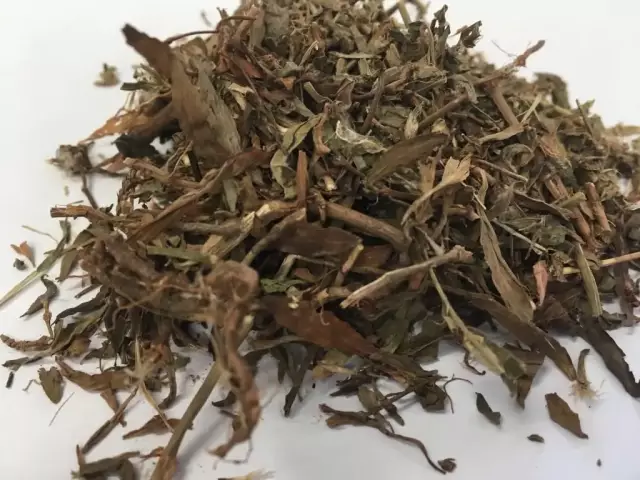- Author Rachel Wainwright wainwright@abchealthonline.com.
- Public 2023-12-15 07:39.
- Last modified 2025-11-02 20:14.
Male infertility
General characteristics of the disease

Male infertility is not a man's ability to naturally fertilize a female ovum. Infertility becomes a medical problem if a couple has been unable to conceive a child for a year or more.
In 30% of cases, this is due to the male factor of infertility. 35% are women with reproductive health problems. In 15% of cases, combined female and male infertility is diagnosed. And the remaining 20% falls on the so-called idiopathic infertility, i.e. unexplained etiology.
Causes of male infertility
The causes of male infertility include abnormalities in spermatogenesis (sperm production), as well as erectile dysfunction and ejaculation. The first group of factors in male infertility is the most common.
According to the WHO, the causes of male infertility can be psychosexual, infectious, immunological or endocrine in nature. Injuries to the testicles, varicocele (dilated veins in the spermatic cord) and the following pathologies of spermatogenesis often lead to male infertility:
- azoospermia (absence of living motile sperm in the semen),
- asthenospremia (low sperm motility),
- necrospermia (presence of a large number of non-viable sperm in the semen),
- teratospermia (disorders of the structure of sperm),
- hypospermia (ejaculate deficiency),
- polyspermia (excessive amount of semen), etc.
Among the causes of male infertility that have caused disturbances in sperm production, hydrocele or dropsy of the testicle, cryptorchidism (undescended testicle into the scrotum), benign and malignant neoplasms of the testicles are also called.
Factors of male infertility include viral parotitis, commonly called mumps. Other infectious diseases that have caused male infertility include syphilis, chlamydia, trichomoniasis and gonorrhea. These sexually transmitted diseases affect not only the quality of sperm, but can also provoke problems with erection and ejaculation, as well as pathology of the urethra.
Factors of male infertility include undergoing a course of radiation or chemical therapy, prolonged use of antibiotics or anabolic steroids.

Male infertility of an immunological nature is provoked by alcohol and drug abuse, stress, vitamin deficiency, systematic overheating, a sedentary lifestyle and regular excessive physical exertion.
Diagnosis of male infertility
Male infertility is diagnosed after examination and consultation with a therapist, urologist, endocrinologist, geneticist and sex therapist. To make a diagnosis, a man needs to undergo a general and urogenital examination, take a spermogram, check the cytological composition of seminal vesicles and prostate secretions.
In the diagnosis of male infertility, testing for genital infections is mandatory: chlamydia, mycoplasmosis, ureaplasmosis, herpes virus, cytomegalovirus. A patient with a preliminary diagnosis of male infertility is required to undergo hormonal screening. The man is also sent for ultrasound of the pelvic organs and the thyroid gland.
In severe diagnostic cases of the causes of male infertility, renal phlebography, radiography or MRI of the skull, as well as a testicular biopsy are recommended.
Male infertility treatment
In the conservative treatment of male infertility of hormonal etiology, gonadotropin preparations, estrogen antagonists, glucocorticoids or testosterone are used. The choice of a drug depends on the type of hormonal pathology.
Retrograde ejaculation, as one of the factors of psychosexual male infertility, is treated with courses of antidepressants. Patients with sperm ejection disorders who have a history of bladder neck surgery require a different approach. In the treatment of male infertility of this type, collagen injections are used directly into the bladder neck
Surgical treatment of male infertility is used for varicocele. The operation is performed by the endoscopic method or by an open method with transperitoneal access. If the cause of male infertility is a violation of the patency of the vas deferens, the patient is shown a vasoepididymoanastomosis or vasoorchoanastomosis.
With pathologies of erection or ejaculation against the background of undisturbed spermatogenesis, medical sperm collection is possible for subsequent fertilization of the egg. Withdrawal of sperm in male infertility occurs with the help of a puncture from the testicle or microsurgery.
Thanks to assisted reproductive technologies, modern couples manage to conceive a child even in cases of the most severe male infertility. The desired pregnancy occurs as a result of intrauterine egg insemination or in vitro fertilization.
Alternative treatment of male infertility

In the treatment of male infertility with folk remedies, herbal medicine is widely used. Herbs that revive masculine strength include two-leaved lyubka, male orchis, common wormwood, safflower leuzea, yellow capsule, hoof, etc. The roots and leaves of these plants are used to make medicinal concoctions.
Very often seeds and nuts are used in folk treatment of male infertility: fenugreek, asparagus, plantain, nettle, pine, cedar.
The role of nutrition in the treatment of male infertility with folk remedies cannot be overestimated. To normalize hormonal levels, men are advised to eat phytohormones. They are found in nuts, pomegranate and quince juice, sorrel, sage.
Rose, sandalwood, geranium, jasmine, and clary sage oils are used as aromatherapy in the folk treatment of male infertility. It is recommended to use them during massage or add a few drops to the bath. Massage in a bath with thermal procedures is more effective - the functions of the sebaceous and sweat glands are improved, blood flow is accelerated, the skin becomes firm and elastic.
YouTube video related to the article:
The information is generalized and provided for informational purposes only. At the first sign of illness, see your doctor. Self-medication is hazardous to health!






